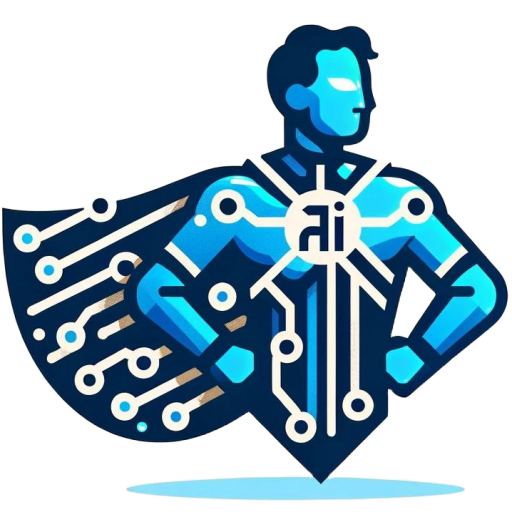Last Updated: January 16, 2024
The integration of Artificial Intelligence (AI) in healthcare is transforming the industry, particularly in the arena of early disease detection and treatment. This technological revolution is moving healthcare from a reactive to a proactive discipline, with AI emerging as a key player in identifying and addressing health concerns at their inception.
The Revolutionary Role of AI in Healthcare
AI’s impact in healthcare is extensive, marked by its ability to rapidly and accurately analyze complex medical data. This technology is crucial in early detection of diseases, including cancers, heart conditions, and neurological disorders. The efficiency of AI algorithms in processing medical imagery and records leads to faster, more accurate diagnoses, significantly improving patient outcomes and potentially saving lives.
AI in Early Cancer Detection
In the realm of cancer detection, AI has shown remarkable promise. Utilizing AI’s computational power enables healthcare professionals to identify cancers at their earliest stages. AI’s capability to analyze detailed medical data, including imagery and health records, allows for the identification of subtle disease markers, often invisible to the human eye. Early detection is key to timely medical interventions, greatly improving patient survival rates and quality of life.
Deep Learning and Convolutional Neural Networks
Deep learning, a branch of AI, has made significant strides in medical diagnostics. Convolutional Neural Networks (CNNs) are particularly effective in analyzing medical images such as X-rays, CT scans, and MRIs. These networks excel at detecting minute changes and abnormalities in images, aiding early diagnosis of diseases like breast, lung, and skin cancers.
The Future of AI in Healthcare
AI in healthcare is more than just a technological advancement; it represents a paradigm shift in medical care. AI in early disease detection signifies a move towards proactive healthcare, emphasizing prevention and early intervention. This shift has profound implications for patient care, healthcare costs, and the overall efficacy of the healthcare system.
As AI continues to evolve, its applications in healthcare are expected to grow, further enhancing medical professionals’ ability to diagnose and treat diseases at an early stage. This advancement heralds a new era in healthcare, where AI-driven solutions offer hope for improved health outcomes and a transformative approach to patient care.
For further insights into AI’s role in early disease detection and healthcare, explore these comprehensive sources:
- ScienceDaily’s article on AI in early detection and treatment of illnesses.
- AIP Advances’ article on AI-driven early cancer detection.
Next Steps for Various Audiences
For Doctors and Healthcare Providers:
- Educate Yourself: Stay informed about the latest AI developments in healthcare. Online courses and webinars from reputable institutions can be valuable.
- Collaborate with AI Experts: Seek partnerships with AI technology firms or academic researchers to understand how AI can be integrated into your practice.
- Patient Education: Educate your patients about AI’s role in healthcare, addressing any concerns or misconceptions they may have.
For Patients:
- Stay Informed: Read about AI in healthcare and how it might affect your treatment options. Reliable sources like Mayo Clinic or WebMD can provide trustworthy information.
- Ask Questions: During medical appointments, inquire about the role of AI in your diagnosis and treatment. Don’t hesitate to ask how AI-driven decisions are made.
- Embrace Technology: Be open to the use of AI-recommended treatments or diagnostics, while also seeking a clear understanding from your healthcare provider.
For Healthcare Administrators:
- Invest in AI Technology: Evaluate and invest in AI technologies that can improve diagnostic accuracy and patient care.
- Training for Staff: Ensure that medical staff are trained in the latest AI technologies and understand how to integrate them into their work.
- Policy Development: Develop policies and procedures for the ethical use of AI in your healthcare settings, ensuring patient data privacy and security.
For Medical Researchers:
- Conduct AI-Related Research: Focus on research that evaluates the efficacy and safety of AI tools in healthcare.
- Collaboration: Collaborate with technologists and clinicians to develop new AI tools and improve existing ones.
- Publish Findings: Share your research in peer-reviewed journals and at conferences to contribute to the broader understanding of AI in healthcare.
For Tech Developers and AI Specialists:
- Understand Clinical Needs: Work closely with healthcare professionals to understand the practical needs and challenges in healthcare.
- Focus on User-Friendly Design: Develop AI tools that are intuitive and easy for healthcare professionals and patients to use.
- Ethical Considerations: Prioritize ethical considerations, including data privacy and avoiding bias in AI algorithms.
For Policy Makers and Government Officials:
- Create Supportive Regulations: Develop regulations that support the ethical use of AI in healthcare while fostering innovation.
- Funding for AI Research: Allocate funds for research in AI in healthcare, focusing on both technological development and ethical implications.
- Public Education Campaigns: Organize campaigns to educate the public about the benefits and limitations of AI in healthcare.
Each of these steps is crucial for the respective audience to harness the potential of AI in healthcare effectively and responsibly. Embracing these actions will help in realizing the full potential of AI in transforming healthcare, benefiting both healthcare providers and patients.

Leave a Reply